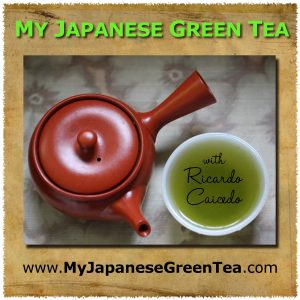Podcast: Play in new window | Download | Embed
 Tyas Sōsen from The Tea Crane has been working on a new tea project.
Tyas Sōsen from The Tea Crane has been working on a new tea project.
In this podcast we talk about his Kickstarter campaign, organic and natural teas in Japan, how to prepare them, and about teas other than the usual green teas that are being made in Japan.
Tyas plans to write a book on the subject, and in the future he will open a tea bar in Kyoto.
I hope to one day meet him again and drink his new teas.

August 8, 2018
Very excited about this subscription. I learned a lot about plants from seeds versus clones!
August 20, 2018
Wow, what Tyas said about steeping organic teas makes so much sense but creates so many questions! Here are a few that come to mind:
If organic teas have less amino acids, and amino acids are what gives tea the great umami taste, then organic and minimally processed green tea has less of the great taste than nonorganic teas? Bummer.
If organic teas have less amino acids and catechins than nonorganic teas, then organic tea has less amino acids such as Theanine, and less catechins such as EGCG. Therefore even though it is healthier not to consume pesticides, organic tea must also have less health benefits compared to non-organic tea? How much less of these health properties do they have compared to regular tea? This is probably a good question for Noli Ergas of Sugimoto.
If both of these points are true then it really is important to steep organic green tea at as high a temperature as possible. This really is a game changer for my relationship with green tea.
Thanks again for the great episode and I was happy to be one of the first supporters of this excellent Kickstarter!
August 21, 2018
Good questions and great things to consider.
In all the test results I’ve seen, I have not seen a difference in EGCG in organic teas versus conventional that I can pinpoint to organic farming. That being said, we haven’t tested organic vs. non-organic specifically, so my understanding is extrapolated from what we have tested.
Likewise, I haven’t seen a change in theanine levels that I could attribute to organic vs. non-organic, but this one I would believe. Theanine and all amino acids are only as abundant as the nitrogen that the plant has access to, and conventional fertilizers are nitrogen-rich. I’ve never had as umami-rich of matcha in organic as I have had at the high end of conventional matchas, and the umami flavor is due to the amino acids.
If you’re really looking for more EGCG in your diet, I think it would be more pleasurable to consume matcha than steep sencha at boiling water. With matcha, you know you’re getting everything in the leaf, no matter what temperature you prepare it at.